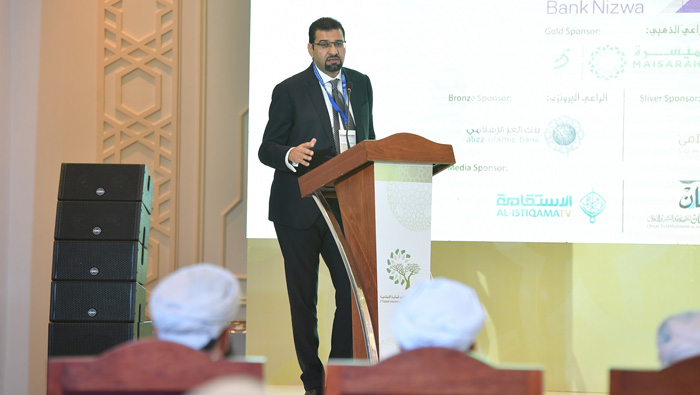
Muscat: Bank Nizwa, Oman’s leading Islamic bank, took part in the 2nd Salalah International Islamic Finance Conference. The annual event, held under the patronage of Sheikh Khalid bin Omar bin Said Al Marhoon, Minister of Civil Service and attendance of Tahir bin Salim Al Amri, executive president of the Central Bank of Oman (CBO), brought industry experts together to share knowledge and the latest research regarding the Islamic financial sector and its products globally. The theme of this year’s conference was the Role of Islamic Finance in Building a Diversified and Sustainable Economy.
Khalid Al Kayed, CEO of Bank Nizwa, participated in the first panel discussion regarding liquidity and its impact on Islamic finance. In addition, two white papers were presented during the event by Bank Nizwa senior management including Dr Mansour Alqudah, Head of Sharia Compliance and Mustafa Al Nabbi, Sharia Training Assistant Manager. The debate centred around the development of Islamic finance in the Sultanate, Islamic financial institutions and their role in achieving economic stability, and the role of Waqf in economic development.
Al Kayed said, “Bank Nizwa continuously seizes opportunities to showcase the numerous benefits of Islamic finance in diverse industries and market segments as well as contributions to economic development. With that said, today’s discussion about liquidity in the market especially is very important. This has been one of the main challenges for Islamic banks, the fact that liquidity is not available for us given there is no framework yet for our novel industry when it comes to managing liquidity and meeting the requirements of these institutions in a fairly new sector.”
In addition to Islamic finance and economic diversification, contemporary issues in Islamic finance including electronic and digital currencies, and the various types of Sukuk and issuance procedures came under the spotlight. The conference also reviewed the challenges and solutions of banks, Takaful insurance, reinsurance, the governance of Islamic financial institutions, the legality of the Sukuk, its legal aspects and the Sultanate’s experience of the issuance of Sukuk.